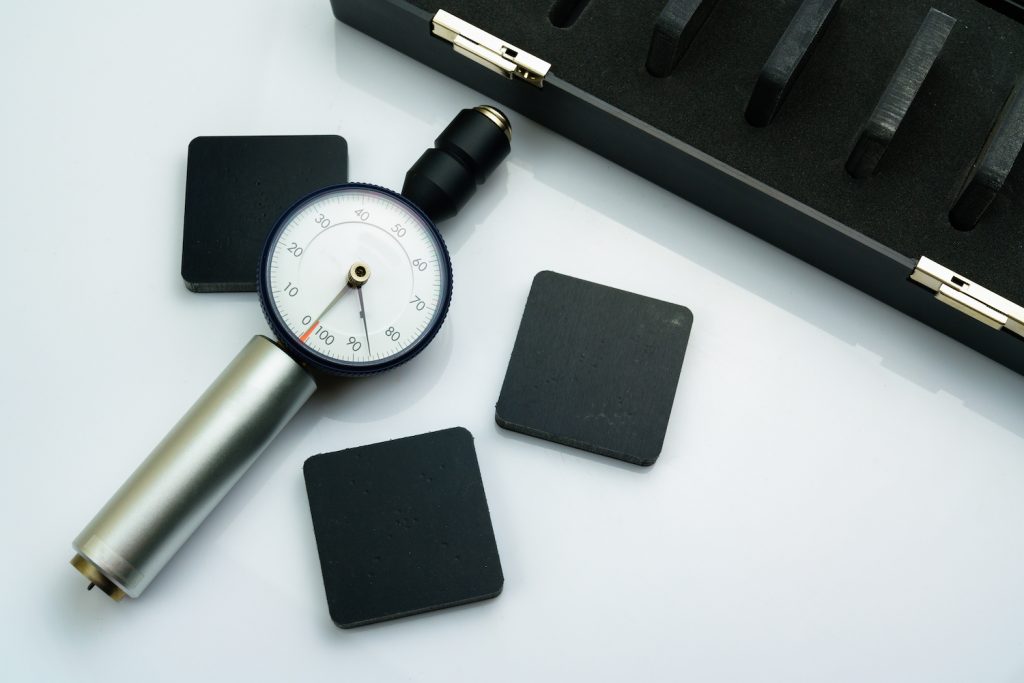
Durometer is a critical measurement when creating parts. But what is it, exactly, and why is it so important?
What is Durometer?
Durometer (or shore durometer) is a method for measuring the hardness of elastomers (rubber) and plastics. Since these materials are more flexible than metal or rock, they require a different metric for measuring hardness.
Durometer scales range from 0 to 100, but unlike other metrics for hardness they are not necessarily universal – sometimes durometers are called a dimensionless measurement since there is no such thing as a “durometer unit of measurement.”
How Durometer is Measured
But if there’s no universal, how can measurements be consistent? That’s where shore durometer comes in. These hardness scales are a reproducible reference, and the most common three you’ll encounter are shore 00, shore A, and shore D. Each of these scales are self-contained – for example, if you’re measuring with shore A and comparing materials, you’ll need to measure all materials with the shore A scale. A material that’s an 80 on a durometer 00 scale is not the same hardness as an 80 on shore D scale.
Durometer Material Selection
Product teams determine these shore durometers by using durometer testers in the various scales. For businesses looking to create parts, your product team will use the scale most relevant to the type of desired material.
These scales are used as follows:
- Shore 00: Used for very soft rubbers and gels
- Shore A: Used for a range from very soft and flexible, to medium hardness/flexibility, to very hard with almost no flexibility.
- Shore D: Used for hard rubbers, semi-rigid plastics and hard plastics.
What scale is used will depend largely on the part you’re looking to make. From there, you’ll compare hardness of similar materials within the same shore durometer scale. For all of the scales: the lower the number, the softer the rubber. The higher the number, the harder the rubber.
If you’re looking to have a part designed, you don’t need to be well-versed in durometers. Any good fabricator will help you determine the right material based on your needs. However, it’s still useful to know the basics of how durometers and shore durometers work, so you can understand more about why you might select a certain material.
Not all applications are the same – so it stands to reason that not all materials are the best fit for every application. Knowing the right material to choose for your product is key to unlocking the performance you want.
Here’s what out materials experts can do for you:
- Discuss new trends in materials and material management
- Outline your materials options
- Identify cost-efficient materials
- Share their experience with specific materials over the life of a product and an understanding of how they interact
- Draw on an extensive network of procurement partners
Contact us and speak with an engineer about your project at (612) 781-2255, or request a quote online. You will receive a prompt response.
Industrial Custom Products is a one-stop-shop for custom manufacturing and plastic fabrication, including: prototyping and product development, die cutting and dieless knife cutting, thermoforming and vacuum forming, large part thermoforming, CNC plastic routing, fabrication and assembly and drape forming.

